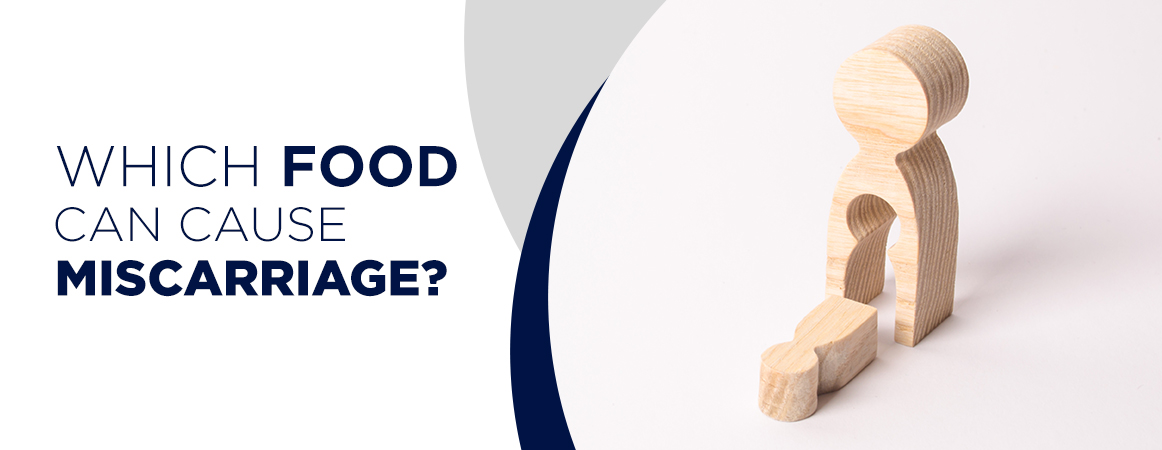Which Food Can Cause Miscarriage?
Pregnancy is a delicate period where the health and safety of both the mother and the developing baby are paramount. Among various factors that could jeopardize a pregnancy, certain foods are known to increase the risk of miscarriage. This article explores which foods can cause miscarriage, highlights common miscarriage causes, and identifies miscarriage symptoms.
Foods to Avoid During Pregnancy
Certain foods can pose risks due to contamination, bacterial infections, or high levels of harmful substances. Here are some foods pregnant women should avoid to reduce the risk of miscarriage:
Unpasteurized Dairy Products
- Listeria Risk: Unpasteurized milk and cheeses can harbor Listeria, a bacteria that can lead to infection, causing miscarriage or severe illness in newborns.
- Soft Cheeses: Brie, Camembert, and blue-veined cheeses should be avoided unless labeled as pasteurized.
Raw or Undercooked Meat
- Toxoplasmosis: Consuming raw or undercooked meat can lead to toxoplasmosis, an infection that may cause miscarriage.
- Listeria and Salmonella: These bacteria can also be found in undercooked poultry and meat, posing serious health risks.
Certain Seafood
- High Mercury Levels: Fish such as swordfish, king mackerel, and tilefish contain high mercury levels, which can harm the developing nervous system of the fetus.
- Raw Seafood: Sushi and other raw seafood can contain harmful bacteria and parasites.
Potentially Harmful Foods and Substances
In addition to avoiding certain types of foods, pregnant women should be cautious of specific ingredients and substances that might contribute to miscarriage:
Caffeine
- Excessive Intake: High caffeine consumption has been linked to an increased risk of miscarriage.
Herbal Teas and Supplements
- Unregulated Ingredients: Some herbal teas and supplements contain ingredients that can trigger uterine contractions, potentially leading to miscarriage.
Unsafe Herbs
- Avoid herbs such as pennyroyal, mugwort, and wormwood.
Processed and Junk Foods
- High Additive Content: Foods high in artificial additives, preservatives, and excessive salt can negatively impact pregnancy health.
- Nutrient Deficiency: Lack of essential nutrients can weaken the body’s ability to support a healthy pregnancy.
Alcohol and Certain Beverages
- Alcohol Consumption: Alcohol is a well-known teratogen and can lead to fetal alcohol syndrome and miscarriage. Total abstinence is recommended.
- Unpasteurized Juices: These can contain harmful bacteria like E. coli, which pose risks to pregnancy.
Fruits to Avoid During Pregnancy: Potential Risks
While fruits are generally a healthy and essential part of a balanced diet, certain fruits can pose risks during pregnancy and potentially contribute to miscarriage. Understanding which fruits can cause miscarriage helps in making informed dietary choices.
Unripe Papaya
- Latex Content: Unripe or semi-ripe papayas contain high levels of latex, which can trigger uterine contractions, potentially leading to miscarriage.
- Enzymes: The enzyme papain in unripe papaya mimics prostaglandins, which may induce labor.
Pineapple
- Bromelain Enzyme: Pineapple contains bromelain, which can soften the cervix and potentially lead to premature labor or miscarriage if consumed in large amounts, especially in early pregnancy.
- Moderation Key: Small amounts are generally safe, but excessive consumption should be avoided.
Grapes
- Resveratrol: Grapes, particularly in large quantities, can cause complications due to resveratrol, which might imbalance hormone levels.
- Pesticide Residue: Non-organic grapes may carry pesticide residues that are harmful during pregnancy.
Wild and Unwashed Berries
- Bacterial Contamination: Wild or unwashed berries can harbor bacteria and parasites like E. coli or toxoplasmosis, leading to infections that increase miscarriage risk.
While most fruits are safe and beneficial during pregnancy, being cautious with these specific fruits can help in maintaining a healthy pregnancy. Always get the advice of a healthcare professional before making any dietary changes.
Recognizing Miscarriage Symptoms
Understanding miscarriage symptoms is crucial for early detection and intervention. Common symptoms include:
- Vaginal Bleeding: Light spotting can be normal, but heavy bleeding is a warning sign.
- Abdominal Pain: Severe cramping or abdominal pain may indicate a miscarriage.
- Tissue Passing: Passing tissue or clots from the vagina is a strong indication.
- Loss of Pregnancy Symptoms: A sudden loss of nausea, breast tenderness, or other pregnancy symptoms might suggest a problem.
Preventative Measures
While it’s essential to know which foods can cause miscarriage, taking preventative measures can also help reduce risks:
- Balanced Diet: Make sure your diet is high in whole grains, lean meats, and fruits and vegetables.
- Regular Check-ups: Frequent prenatal visits can help monitor the health of both mother and baby.
- Food Safety Practices: Always wash fruits and vegetables, cook meat thoroughly, and avoid cross-contamination in the kitchen.
- Hydration and Rest: Staying hydrated and getting adequate rest supports overall health.
Conclusion
Understanding which foods can cause miscarriage and recognizing miscarriage causes are critical for ensuring a healthy pregnancy. By avoiding high-risk foods and adopting safe dietary practices, pregnant women can significantly reduce the risk of miscarriage. Additionally, being aware of miscarriage symptoms allows for prompt medical attention, which can be crucial in safeguarding the pregnancy. Consult with a healthcare provider at MMI for personalized advice and support throughout pregnancy.


